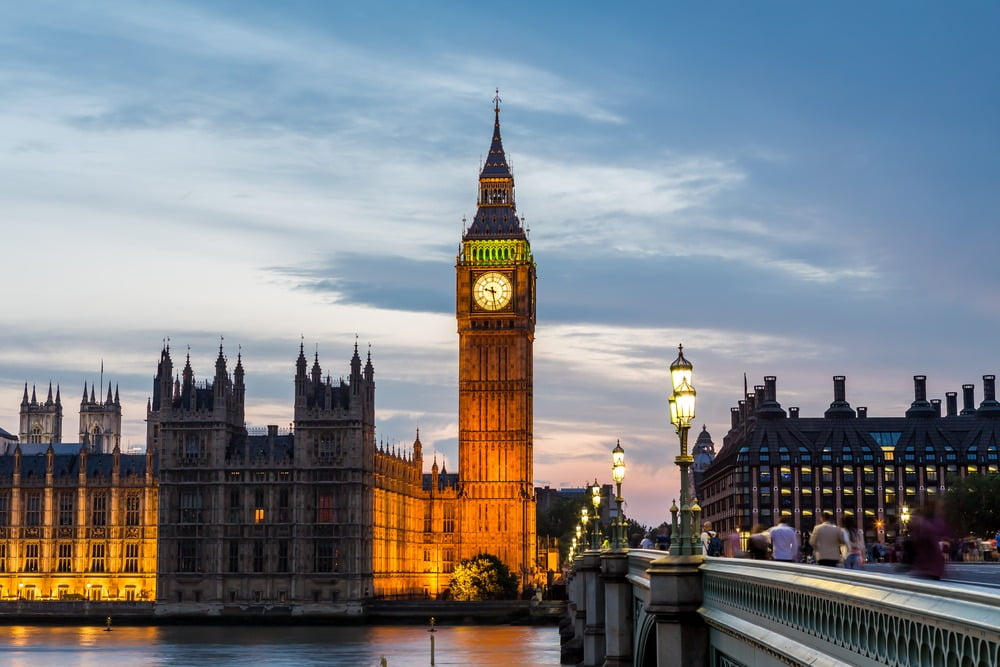
UK Energy & Sustainability Policy Update – Spring 2023
Thursday 30th March 2023 was a busy day, with lots of policies, consultations and funding released by the Department for Energy Security and Net Zero (DESNZ), Department for Environment, Food & Rural Affairs (DEFRA) and HM Treasury, amongst others.
The UK government has been working to implement a range of policies and initiatives aimed at tackling climate change, promoting sustainable finance, and reducing greenhouse gas emissions.
Thursday 30th March 2023 was a busy day, with lots of policies, consultations and funding released by the Department for Energy Security and Net Zero (DESNZ), Department for Environment, Food & Rural Affairs (DEFRA) and HM Treasury, amongst others. These cover a wide range of areas, from energy and transport to international climate development and finance.
In this piece, we will highlight some of the key initiatives that have been released.
Energy
Powering Up Britain
The UK government has responded to the Climate Change Committee’s (CCC’s) 2022 Progress Report to Parliament and Chris Skidmore’s Independent Review via the “Net-Zero Growth Plan” after the original Net-Zero Strategy, published in October 2021, was deemed unlawful by the High Court.
This document also contained the British Energy Security Plan which outlined plans to scale up affordable, clean homegrown power to strengthen Britain’s long-term energy security and reduce household bills.
The strategy includes a range of measures to support the development of low-carbon energy technologies ‘to power more of Britain from Britain’, including renewable energy, energy storage, and electric vehicles and asserts to grow the economy by supporting almost half a million new green jobs by 2030.
The full details on the government’s response can be found here.
Community Benefits for Electricity Transmission Network Infrastructure
An open consultation has been launched for views and proposals to enhance community benefits for electricity transmission network infrastructure. The consultation seeks views on how community benefits can be used to support the deployment of new transmission infrastructure to support the delivery of national objectives.
Communities that host this network infrastructure play a vital role in supporting the delivery of cheaper, secure and low-carbon energy and it is only right that they can benefit from developments in their area.
The consultation closes at 11.45pm on 25th May 2023. A series of webinars and engagement events will be held to answer any questions and to provide information during the consultation window.
Read more detail about the Community Benefits here.
Proposals for Hydrogen Production and Industrial Carbon Capture Regulations
The UK government is also seeking views on revenue support regulations in relation to the hydrogen production, industrial carbon capture (ICC) and waste ICC business models.
Low carbon hydrogen and carbon capture, usage and storage (CCUS) have a key role in the UK’s Net-Zero Strategy and helping meet our legally binding commitment to achieving net- zero by 2050 by providing flexible energy deployment across power, transport and heat.
This consultation considers provisions needed to be able to enter into business model contracts in line with the government’s ambitions. It closes at 11:45pm on 10th May 2023.
Share your views on hydrogen production here.
Industrial Energy Transformation Fund: Phase 3
DESNZ also confirmed plans to launch the third phase of the Industrial Energy Transformation Fund with £185 million in grant funding to draw from in 2024 (see previous information from phase 2 here).
The Industrial Energy Transformation Fund (IETF) is designed to help businesses with high energy use to cut their energy bills and carbon. Funding is available to UK businesses to support energy efficiency and decarbonisation projects. The UK government will hold a full consultation later this year to finalise Phase 3 of the fund before launching the first competition window early next year.
Learn more about Phase 3 of the Industrial Energy Transformation Fund.
Transport
A Zero Emission Vehicle (ZEV) Mandate and CO2 Emissions Regulation for New Cars and Vans in the UK
Following previous technical design consultations in both July 2021 and July 2022, the UK government launched a consultation on a proposed Zero Emission Vehicle (ZEV) mandate and CO2 emissions regulation for new cars and vans in the UK. The proposed regulation aims to encourage the transition to zero-emission vehicles by requiring a certain percentage of new car and van sales to be zero-emission vehicles each year, after cars and vans were responsible for 18% of the UK’s total domestic GHG emissions in 2021.
The consultation closes at 11:45pm on 24th May 2023.
Read the ZEV mandate and CO2 Regulations consultation here.
Pathway to Net-Zero Aviation: Developing the UK Sustainable Aviation Fuel Mandate
Building on the ‘Mandating the use of sustainable aviation fuels in the UK’ consultation outcome from 2021, the UK government launched a second consultation on a proposed Sustainable Aviation Fuel (SAF) mandate to support the aviation industry’s decarbonisation efforts.
The proposed mandate would require all UK airports to provide a minimum level of SAF as a proportion of the total fuel sold. The consultation also seeks feedback on how to incentivise the production and use of SAF and how to ensure its sustainability.
Read more detail on the Sustainable Aviation Fuel Mandate here.
Net-Zero
UK Net-Zero Research and Innovation Framework Delivery Plan 2022 to 2025
Also published, was the Net-Zero Research and Innovation Framework Delivery Plan from 2022 to 2025. The plan outlines the government’s £4 billion strategy to develop and support research and innovation in areas such as energy, transport, and agriculture to help achieve the goal of net-zero emissions by 2050.
This plan addresses the challenges outlined in the UK’s ‘Net-Zero Research and Innovation Framework’ published in October 2021.
To understand the Net-Zero Research and Innovation delivery plan in full, read more here.
Addressing Carbon Leakage Risk to Support Decarbonisation
The UK government is consulting on a range of potential policy measures to mitigate future carbon leakage risk. Carbon leakage occurs when businesses relocate to countries with less stringent climate policies to avoid higher costs. The consultation seeks feedback on potential policy options to reduce risk, including carbon border adjustments, free allowances for certain industries, and a carbon credit scheme. The goal is to ensure that the UK’s decarbonisation efforts are not undermined by businesses relocating to countries with weaker climate policies.
This consultation closes at 11:59pm on 22nd June 2023.
Respond to the Carbon Leakage consultation here.
Environment
2030 Strategic Framework for International Climate and Nature Action
In March 2023, the UK government published its 2030 Strategic Framework for International Climate and Nature Action. The framework outlines the UK’s approach and sets out a number of key objectives, including reducing global emissions, increasing investment in green technologies and supporting nature-based solutions over the next decade.
‘It outlines what part the UK will play in addressing 6 global challenges to meet this vision, deploying the full range of levers at our disposal and playing to the UK’s particular strengths and expert’.
The development of the framework was informed by views and discussions from Spring 2022.
Learn more about the framework for International Climate and Nature Action here.
Environmental, Social & Governance (ESG)
Green Finance Strategy
The UK government’s Green Finance Strategy was first published in July 2019, and outlines how the financial sector can support the UK’s transition to a low-carbon, sustainable economy. The strategy sets out a range of measures to encourage private investment in green infrastructure, and to ensure that the financial system is resilient to the risks posed by climate change.
This was republished on Friday 31st March 2023 as ‘Mobilising Green Investment: 2023 Green Finance Strategy’.
The strategy includes a number of key initiatives, such as the creation of a Green Finance Institute to provide industry leadership, the introduction of mandatory climate-related financial disclosures for listed companies, and the development of new green finance products such as green mortgages and green savings bonds. The strategy also includes plans to establish a Centre of Excellence for Sustainable Finance to provide research and training in sustainable finance.
Read the Green Finance Strategy in full.
UK International Climate Finance Strategy
The government’s new International Climate Finance Strategy, which sets out how the UK will support developing countries to transition to low-carbon, climate-resilient economies. The strategy includes commitments to provide £11.6 billion in international climate finance over the next five years, and to prioritise investments in renewable energy, climate-smart agriculture, and nature-based solutions.
The strategy also includes a focus on supporting vulnerable communities, particularly those in small island developing states (SIDS) and least developed countries (LDCs), and on working with multilateral development banks and other international partners to mobilise private finance for climate action.
Read the International Climate Finance Strategy in full.
Future Regulatory Regime for ESG Ratings Providers
HM Treasury has launched a consultation on the future regulatory regime for Environmental, Social, and Governance (ESG) ratings providers. The consultation seeks to gather views on how ESG ratings providers should be regulated to ensure that their ratings are accurate, reliable, and consistent.
The consultation includes proposals for a mandatory registration and oversight regime for ratings providers, as well as requirements for transparency and disclosure around methodologies, data sources, and conflicts of interest. The aim of the proposals is to improve the quality and comparability of ESG ratings, and to ensure that investors have access to reliable information on the sustainability of companies and assets.
This consultation closes at 11:59pm on 30th June 2023.
Learn more detail on the Future Regulatory Regime for ESG consultation
Navigating changing policy and market landscapes
Whilst the outcomes of the above consultations and regulations are not yet known, we understand that changing policy and market landscapes can be difficult to navigate. You can speak to one of our dedicated energy experts to better understand your organisation’s unique position and requirements.
Get in touch today on 01772 689250 or email [email protected].










